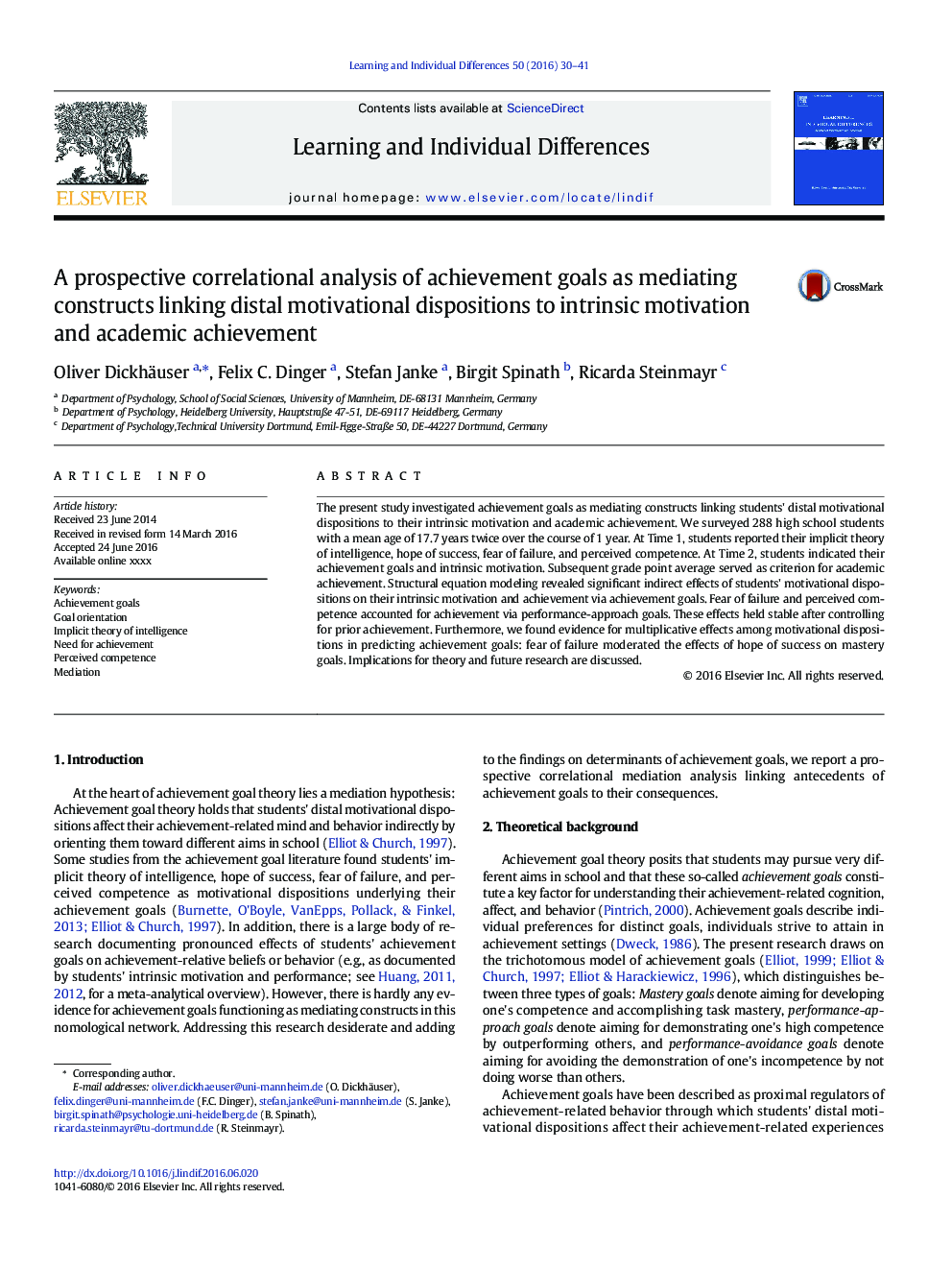| Article ID | Journal | Published Year | Pages | File Type |
|---|---|---|---|---|
| 364474 | Learning and Individual Differences | 2016 | 12 Pages |
•Study fills the gap on the postulated mediating role of achievement goals.•Goals mediated between of students' motivational dispositions, their intrinsic motivation and achievement.•Fear of failure and perceived competence accounted for achievement via performance-approach goals.•The effects held stable after controlling for prior achievement.•Fear of failure moderated the effects of hope of success on mastery goals.
The present study investigated achievement goals as mediating constructs linking students' distal motivational dispositions to their intrinsic motivation and academic achievement. We surveyed 288 high school students with a mean age of 17.7 years twice over the course of 1 year. At Time 1, students reported their implicit theory of intelligence, hope of success, fear of failure, and perceived competence. At Time 2, students indicated their achievement goals and intrinsic motivation. Subsequent grade point average served as criterion for academic achievement. Structural equation modeling revealed significant indirect effects of students' motivational dispositions on their intrinsic motivation and achievement via achievement goals. Fear of failure and perceived competence accounted for achievement via performance-approach goals. These effects held stable after controlling for prior achievement. Furthermore, we found evidence for multiplicative effects among motivational dispositions in predicting achievement goals: fear of failure moderated the effects of hope of success on mastery goals. Implications for theory and future research are discussed.
